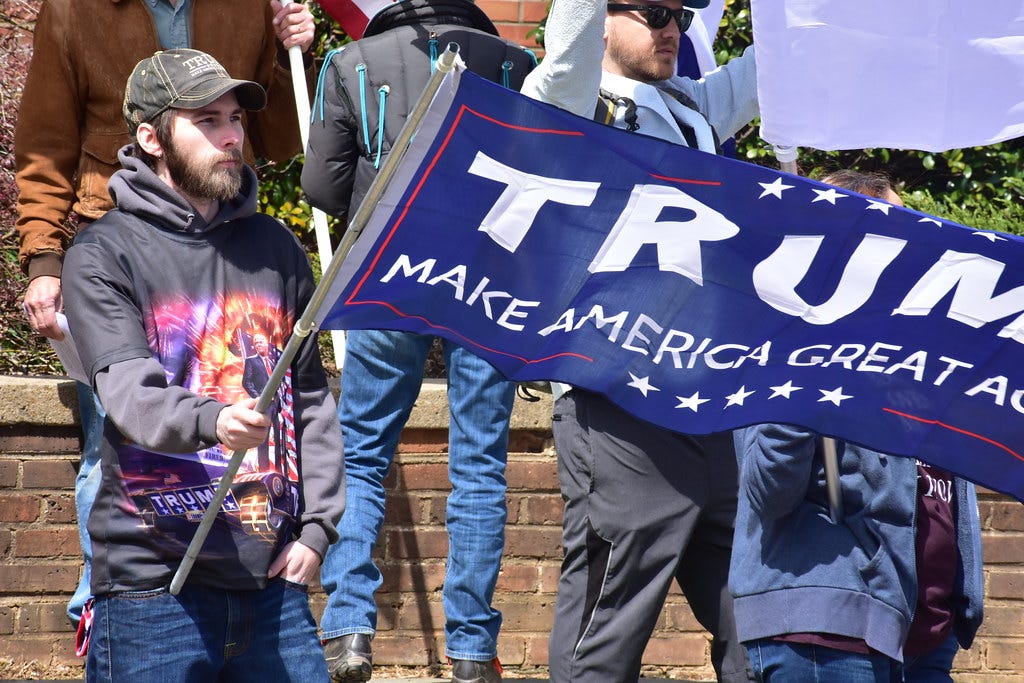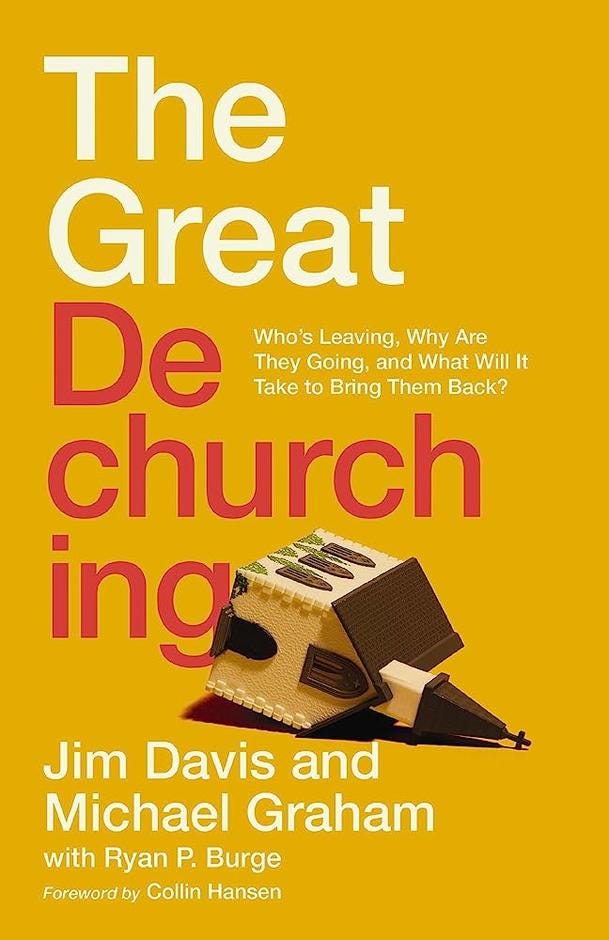The Bad News About Politics Without Religion
Signs that the dechurching of America will have costly implications for our polity

In early 2016, New York Times columnist Ross Douthat tweeted, “If you dislike the religious right, wait till you meet the post-religious right.” Later that year, with Donald Trump having emerged as the Republican presidential candidate, Douthat followed up with a column titled “In Defense of the Religious Right.” In that column, he offered what he described as a “limited” defense of “the beleaguered, battered, all-but-broken religious right.”
Douthat’s basic claim was that a political right without religion would produce a “politics that cares less about marriage and abortion, just as some liberals would wish, but one that’s ultimately far more divisive.” He implored the rebuilding of some sort of religious conservatism because “without the pull of transcendence, the future of the right promises to be tribal, cruel, and very dark indeed.”
Nine years later, and on the verge of another presidential election season, it’s worth asking whether Douthat was correct in his prediction that the political right without religion would be worse than the religious right.
In the News
Earlier this month, Daniel K. Williams wrote an Atlantic piece titled “What Really Happens When Americans Stop Going to Church.” Drawing upon his own research as well as recently published analysis of survey data from political scientist Ryan Burge, Williams suggested that “people hold onto their politics when they stop attending church” and “bring whatever moral and social values they acquired from their church experience and then apply those values in the political sphere with an evangelical zeal.” Progressives in New England who leave “church traditions that place a strong emphasis on concern for the poor and marginalized” continue to support socially liberal political positions. Conversely, “dechurched evangelicals—especially those who retain evangelical Christian beliefs—remain Republican, with conservative views on most issues.”
Williams offered a gloomy prediction:
The exodus of millions of Americans from churches will have a profound influence on the nation’s politics, and not in the way that many advocates of secularism might expect. Rather than ending the culture wars, the battle between a rural Christian nationalism without denominational moorings and a northern urban Social Gospel without an explicitly Christian framework will become more intense.
He concluded that “the decline of churchgoing in America, it seems, has not eviscerated Christianity; it has simply distorted it.” And the distortion “will have politically unpleasant implications that go far beyond church walls.”
In My Head
The dire warnings of Douthat and, more recently, Williams, seem quite plausible to me. Whatever one thinks of Christianity, two empirical observations are unassailable: first, some version of Christian moral norms have anchored middle class America (for good and for bad) for most of our country’s history; and second, those norms generally included appeals to “the fruits of the spirit,” identified by the Apostle Paul in the letter to the Galatians as love, joy, peace, forbearance, kindness, goodness, faithfulness, gentleness and self-control.
The second observation is not a full-throated defense of the sociological form of Christianity in the United States. Plenty of representatives and leaders of the movement have failed to exhibit these fruits. But the basic architecture of Christianity has always insisted on their relevance. Politics without religion has no obvious need or use for these dispositions. And a politics—whether left or right—lacking in them is almost by definition going to be less charitable and more angry. There will of course be Christians, people of other faiths, and people of no faith who engage civically and charitably across their differences, but these individual examples will not prevent the loss or weakening of a plausibility structure that once set such norms at a broad social level.
This reality is exacerbated by another feature of politics untethered from religion: as people become less rooted in religion and more anchored in politics, they place upon politics a transcendent weight that it cannot possibly bear. If all that matters is this earthly life, if there is no plausible appeal to transcendent values or purpose, then it should be unsurprising that the practical implication is to win at all costs. We have already seen examples of this posture from both left and right. And in a depressing study from 2020, researchers reported that only 3.5% of Americans would vote against their policy interests even to protect democratic principles and institutions.
My hunch is that these tendencies will only grow as we inch toward the 2024 presidential election.
In the World
Daniel Williams’s Atlantic article highlights a new book by Jim Davis and Michael Graham (in collaboration with Ryan Burge), The Great Dechurching: Who’s Leaving, Why Are They Going, and What Will It Take to Bring Them Back?
Davis and Graham note the United States is “currently experiencing the largest and fastest religious shift in the history of our country.” Over the past 25 years, roughly 15 percent of American adults (around 40 million people) “have effectively stopped going to church.” This dechurching is affecting all corners of society: “No theological tradition, age group, ethnicity, political affiliation, education level, geographic location or income bracket escaped.”
The effects of dechurching play out relationally through families and friend groups strained or broken by shifting faith commitments. They also play out institutionally as places of worship, religious schools, and religious social service organizations bleed resources, endure painful splits, or shut down altogether. And if my intuitions in today’s newsletter are correct, these effects will have continued downstream social and political consequences—not only for what people believe but in how they engage across their differences in a divided society.






I just finished Tobias Cremer’s book in political populism and religion, and it confirms these findings as well: most of the folks affiliated with Christianity who get involved with far right political projects are those who are rare attenders. It’s all part of the same knot.